Looking for the best C++ IDE? Continue reading the article to know the 12 best IDEs and code editors to use with the popular high-level programming language.
C++ is one of the best high-level programming languages. Also, it is one of the best object-oriented programming languages out there, which is a must-learn for a beginner before starting out with any other complicated programming language. It was my first programming language, and trust me, it helped me a lot to understand the basic data structure and algorithms that are so important to building a successful career as a developer.
This programming language is a combination of procedural and object-oriented programming paradigms. This is in contrast to other popular programming languages , like Java and Python , which are only object-oriented.
Learning C++ helps you to get the answers to questions:
- How do procedural and OOPS languages work? and
- Why do we use object-oriented programming more than procedural programming ?
Though C++ is not that famous nowadays, it is still a building block of almost every other popular programming language, such as Java and Python. Even tech giants like Google have used C++ for developing their products, including the Google Chrome browser.
So, you should not underestimate the power of C++. Anyways, this article is not about the repute and features of C++. To learn this powerful programming language, you need to practice a lot. For that, you need to understand the concept of IDE, which can assist you in writing code and make you more productive in writing C++ code.
What is an IDE?
IDE stands for integrated development environment. These are the software used to write code in one or many programming languages. There are many IDEs on the internet, both free and paid.
An integrated development environment is designed to assist the developer so they can be more productive while writing code and developing applications. Almost all IDEs provide a text editor, debugger, and compiler, as well as useful features like auto code completion and plugin support.
Why do we Need IDEs?
When we talk about a thousand lines of code, then we require tools that can tell us where we are getting bugs and errors. An IDE does so. The debugger is one of the main features that every IDE provides, so the developer can easily spot the bugs and debug them.
Though you can code for every programming language on your notepad or via the command prompt, they do not provide features like auto code completion and syntax highlighting, which play an important role when you code big projects.
An IDE helps developers to code easily and efficiently so they can focus more on the logic and algorithms of the program rather than finding and dealing with typos or exceptions.
12 Best C++ IDEs and Code Editors
So that we are done explaining IDEs and the need for them, let's discuss 12 of the best C++ IDEs and code editors that you can try and learn C++:
1. Turbo C++
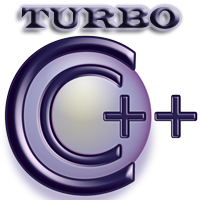
- Category: IDE
- Developed by Borland
- For Windows
- Open-Source
Turbo C++ is a very famous integrated development environment for C++. It is created by the, now defunct, tech company Borland. If you have ever used C++ or even worked with C, it is almost impossible that you have not heard of Turbo C++.
Released in May 1990, Turbo C++ is a kind of a legendary IDE. It is an open-source and lightweight IDE, which makes it possible to run C++ smoothly even on low-end computers. It is, however, not a very powerful integrated development environment as it does not provide all the basic features that a modern-day IDE is supposed to have.
Yet, Turbo C++ reserves a position in most of the top C++ IDEs lists due to its simplicity. It is primarily used for learning and teaching purposes and occasionally for development purposes.
Main Features of Turbo C++:
- Lightweight.
- Discontinued C++ compiler .
- Old, yet interesting, blue interface.
Pros:
- Ultra beginner-friendly.
- Executes both C as well as C++ code.
- Consumes fewer CPU resources.
Cons:
- Does not provide many modern-day IDE features.
- Not the ideal IDE option for big C++ projects.
- Even the editor interface is not interactive.
- No auto-code suggestion feature.
- Only available for Windows.
2. Dev C++
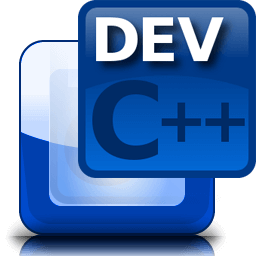
- Category: IDE
- Developed by Bloodshed Software
- For Windows and AlphaLinux
- Open-Source
Dev C++ is an open-source, lightweight IDE created by Bloodshed Software - till 2005 - and Orwell. It is the best C++ IDE for beginners. It is specially designed for C++, though you can code in C language too.
This IDE is also a good IDE for C++ for advanced developers. An important issue, nonetheless, with Dev C++ is that it is only available for Windows and AlphaLinux. So, if you are a macOS or Linux user, you cannot leverage the IDE for C++ development.
Main Features of Dev C++:
- Free to download.
- Syntax highlighting available.
- Has intelligent autocompletion.
- GUI building.
Pros:
- Lightweight IDE.
- Provides many features like auto code completion, auto-close brackets, and syntax highlighting.
- Comes with a very interactive code editor.
- Allows easy switching between multiple files.
- Supports both C as well as C++ programming.
Cons:
- Customization is unavailable.
- Does not provide multiple themes.
- Has many bugs.
- Only available for Windows and AlphaLinux.
3. CLion
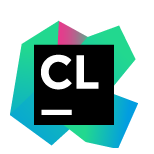
- Category: IDE
- Developed by JetBrains
- Paid IDE
- For Windows, Linux, and macOS
CLion is a very popular - and powerful - integrated development environment for C++ created by JetBrains. The developer is very famous for their feature-rich, premium IDEs. CLion is not an open-source IDE, though.
If you want to use this IDE for your C++ project, you have to pay for it. If you are a beginner and trying to learn C++, we would not prefer CLion as the go-to integrated development environment. But if you have a big project to do or you are an advanced C++ developer, then you can buy this IDE for sure, and let us assure you it’s worth buying.
Main Features of CLion:
- Easily shift from one programming language to another.
- Find and replace symbols or context.
- Generate code.
- Debugging.
- Syntax highlighting.
- Intelligence code completion.
- Supports Git, Mercurial, CVS, Perforce, and TFS.
- Hundreds of plug-ins to choose from.
Pros:
- Can be used for large-scale projects.
- Multiplatform (Windows, macOS, and Linux).
- Editor Customization.
Cons:
- Paid. No free trial available.
- Not beginner-friendly.
- Slow.
4. Eclipse IDE for C/C++
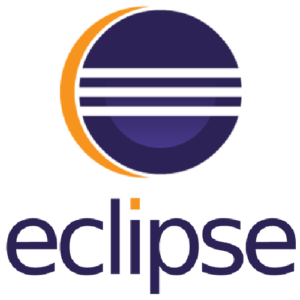
- Category: IDE
- Developed by Eclipse Foundation
- Open-Source
- For Windows, Linux, and macOS
Eclipse is a well-known IDE used for various programming languages, including C++. It is a very powerful and widely-used IDE for C++. The main reason behind its popularity is it being an open-source integrated development environment and supporting many features that you usually get in paid IDEs.
Like all integrated development environments, Eclipse has its own benefits and issues. One of the main disadvantages of Eclipse is that it is a very heavy application. As such, computers with low-end specifications can run into issues when you run Eclipse on them. It has a very complicated interface, but on the other side, it is more productive as well.
Main Features of Eclipse IDE:
- A galore of C/C++ development tools.
- Has a remote system explorer.
- Supports code auto-completion and syntax highlighting.
- Attractive graphical interface.
- Capable of profiling.
Pros:
- Free and open-source.
- Widely used for C++ projects of all sizes.
- Multiplatform.
- Superb community support.
- Has an excellent GUI (with a drag and drop functionality).
Cons:
- Huge in size.
- Cumbersome to add plugins.
- Little slow.
5. Code:: Blocks
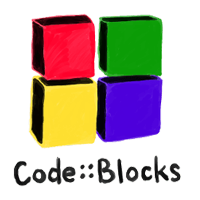
- Category: IDE
- Developed by The Code::Blocks Team
- Open-source
- For Windows, Linux, and macOS.
Code:: Blocks is a very lightweight integrated development environment specifically used for programming in C, C++, and Fortran. The open-source C++ IDE lets you tweak it so you can make changes to fit it into your requirements. Moreover, you can debug it to support the Code:: Blocks community.
Though this IDE is not as powerful as other best IDE for C++ options like Eclipse and CLion, it has all the basic features that a robust IDE for C++ should have. Moreover, Code:: Blocks is very user-friendly and runs smoothly on any system running Windows, macOS, or Linux.
Main Features of Code:: Blocks:
- Supports multiple compilers.
- Syntax highlighting and auto code completion are available.
- Code folding for C, C++, Fortran, XML, and many more files.
- One key swap.
- Externally customizable.
Pros:
- Free and open-source.
- Multi-target projects.
- Customizable user interface.
- Feature-rich.
- Excellent community support.
Cons:
- Poor code completion.
- Much more complicated than most IDEs.
6. Visual Studio Code
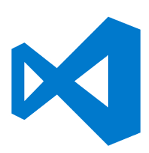
- Category: Code editor
- Developed by Microsoft
- Both open-source (Community version) and paid (Professional and Enterprise versions)
- For Windows, macOS, and Linux
Visual Studio Code is a very powerful code editor created by Microsoft. It is written in C++ and C# . Interestingly, these two languages are the most widely-used programming languages in Visual Studio, upon which VS Code is based. Visual Studio Code is available in 3 versions, out of which only one is free to download, and the other two are paid versions.
Apart from C++ and C#, you can use Visual Studio Code to write code for a galore of programming languages such as Java, Python, Ruby, and JavaScript via simple plugins. Visual Studio Code is used for the development of computer programs, web apps, mobile apps, and websites. It is a very versatile code editor that provides a high level of flexibility to developers.
Main Features of Visual Studio:
- Intelligence code completion.
- Integrated debugger.
- Supports code refactoring and syntax highlighting.
- Customizable theme.
- Code profiler available.
- Multi-language support.
Pros:
- Free and open-source.
- Can be used for large-scale projects.
- Provides support for a range of platforms, including Windows, Android, iOS, and the Web.
- Simple GUI.
- Feature-rich.
Cons:
- Extremely slow at times.
- Slow launch time.
- Many functions rely on extensions.
7. NetBeans

- Category: IDE
- Developed by Apache Software Foundation and Oracle Corporation
- For Windows, Linux, macOS, and Solaris
- Open-source
NetBeans is an open-source IDE created by Apache Software Foundation and Oracle Corporation. It is very famous for its multi-programming language support. Apart from C and C++ , with NetBeans, you can code in Java, PHP, and HTML too.
Using NetBeans, you can simply drag and drop your .cpp files. Also, it provides you with shortcuts to move from one file to another. NetBeans is quite famous in the web development community because it supports PHP and several front-end development tools.
Main Features of NetBeans:
- Can create C and C++ applications with dynamic as well as static libraries.
- Supports the drag-and-drop functionality.
- Refactoring code is available.
- Intelligence code completion.
- Allows unit testing. (You can create and run C and C++ tests right from NetBeans.)
Pros:
- Free and open-source.
- Giant community.
- Superb for building large-scale projects.
- Supports Windows, macOS, and Linux.
- Qt toolkit support.
- Lets you use development tools on remote hosts to create projects.
- Support available for multiple compilers.
Cons:
- Takes time to load.
- Heavy application.
8. CodeLite
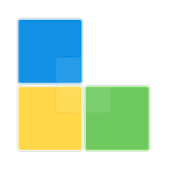
- Category: IDE
- Developed by Iran Ifrah
- For Windows, Linux, FreeBSD, and macOS
- Open-source
CodeLite is another simple and free IDE available for C++ and supports multiple platforms. It is distributed under the GNU General Public License v2 or later. CodeLite gets regular updates and enjoys good support on the GitHub platform. In addition to C++, CodeLite provides support for coding in C, PHP, and JS. For JavaScript, it primarily facilitates back-end developers working with NodeJS. The interface is straightforward and easy to use.
Pros:
- Free and open-source.
- Supports static code analysis.
- Multiplatform support.
- Spell checker available.
- Has word completion.
- Has a lot of useful plugins.
Cons:
- Boring UI.
- Doesn’t provide anything special.
9. Atom
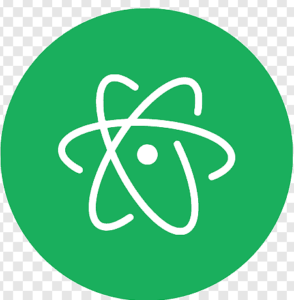
- Category: Code editor
- Developed by GitHub and Microsoft Corporation
- For Windows, Linux, and macOS
- Open-source
Atom is a free and open-source code editor that developers can customize to meet their demands. It supports a wide range of programming languages and supports a minimalistic look. Like most C++ text editors, Atom enables users to install third-party packages and customize the features. Packages can be installed, managed, and published via Atom's package manager app.
Pros:
- Open-source.
- Super easy to use.
- Comes with an integrated package manager.
- Has a plethora of developer tools.
- Good support from GitHub.
Cons:
- Can’t be used for large-scale projects.
- Can’t handle large files.
- Slow.
10. Xcode
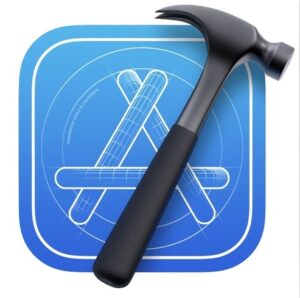
- Category: IDE
- Developed by Apple and RemObjects Software
- For macOS, iOS, iPadOS, watchOS, and tvOS
- Freeware with open-source components
This C++ IDE is the best choice for macOS users. If you’re a developer who wants to create an app in C++ for App Store, Xcode is the best option for you. As it is a product from Apple, it is a good enough reason to use Xcode.
Pros:
- Well-designed UI.
- Can be used for large-scale projects.
- Free.
- Excellent code completion.
- Quick access.
- Superb app testing.
Cons:
- Outdated.
- Lacks online support.
- Exclusively for Apple users.
11. Sublime Text Editor
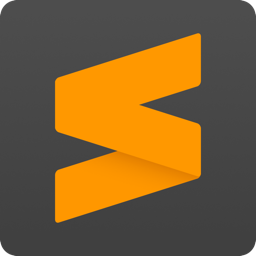
- Category: Code editor
- Developed by Sublime HQ
- For Windows, Linux, and macOS
- Shareware
Sublime Text is a well-defined, multi-platform text editor designed and developed for code, markup, and prose. We can use it for writing C and C++ code, and it offers a great user UI. Besides, the code editor provides support for many programming languages, including Go, Java, MATLAB, Python, and R. Moreover, users can extend the functionality of Sublime Text Editor with community-built plugins.
Pros:
- Supports split editing.
- Multiplatform support.
- Lets you easily switch among projects.
- Fast and flexible.
- Supports a ton of plugins.
Cons:
- Inadequate language support.
- Stability issues.
- Free to use, but registration is paid.
12. GNAT Programming Studio

- Category: IDE
- Developed by GNAT and AdaCore
- For Windows, Linux, FreeBSD, Solaris, and macOS
- Free
GNAT Programming Studio, also known as GPS, simplifies the interaction with your programs. The new version also includes new edit functions, among which is an intelligent autocomplete feature.
GPS gives you a direct interface to the GNAT Pro tools and, thus, easy access to program builders, debuggers, and static as well as dynamic analysis tools. The C++ IDE also allows the integration of third-party version control systems.
Pros:
- Can be used for large-scale projects.
- Interactive UI.
- Superb level of customization.
- Supports autocomplete.
Cons:
- Fewer features as compared to other IDEs.
Conclusion
That sums up this article with the 12 best C++ IDEs and code editors. You can choose one or many from the list to start or advance your C++ journey. Out of these C++ IDEs, Turbo C++ and Dev C++ are our favorite ones, and they are the two most widely used IDEs of C++.
There are many more IDEs available on the internet that we have not mentioned here, mostly because they aren't popular like the ones on the list. All the IDEs we have listed above are the most widely used ones for coding in C++.
If a C++ IDE is not installed on your system, but you wish to execute or compile your C++ program to check the output ASAP, then you could leverage these best online C++ IDEs and compilers . These let you execute your C++ code online from any device.
The online C++ IDEs and compilers come in very handy if you are not on your local system and you urgently want to check the output of a C++ program. However, note that the online C++ IDEs have certain limitations, such as many of them can not work with GUI libraries. Nonetheless, they are perfect for executing and checking less C++ code.
People are also reading:





Leave a Comment on this Post